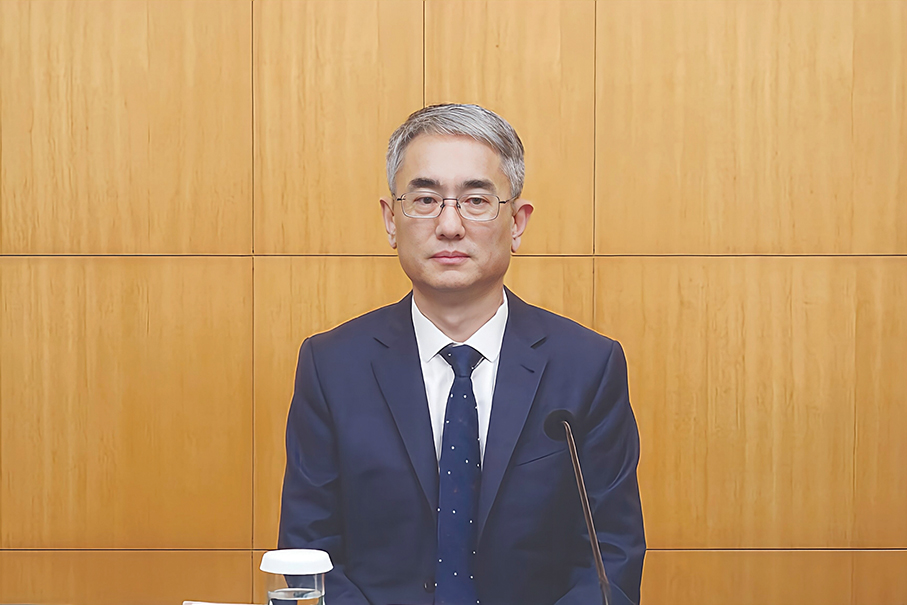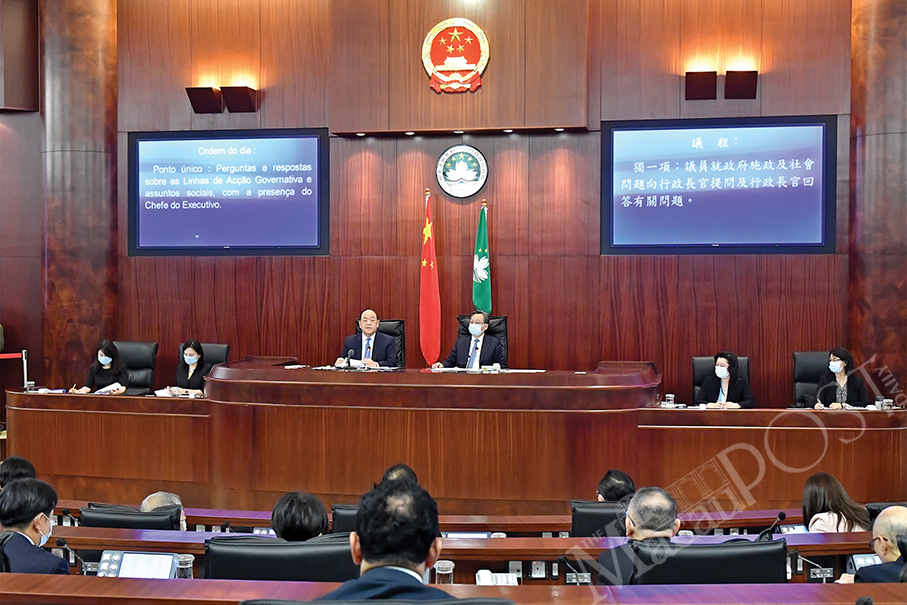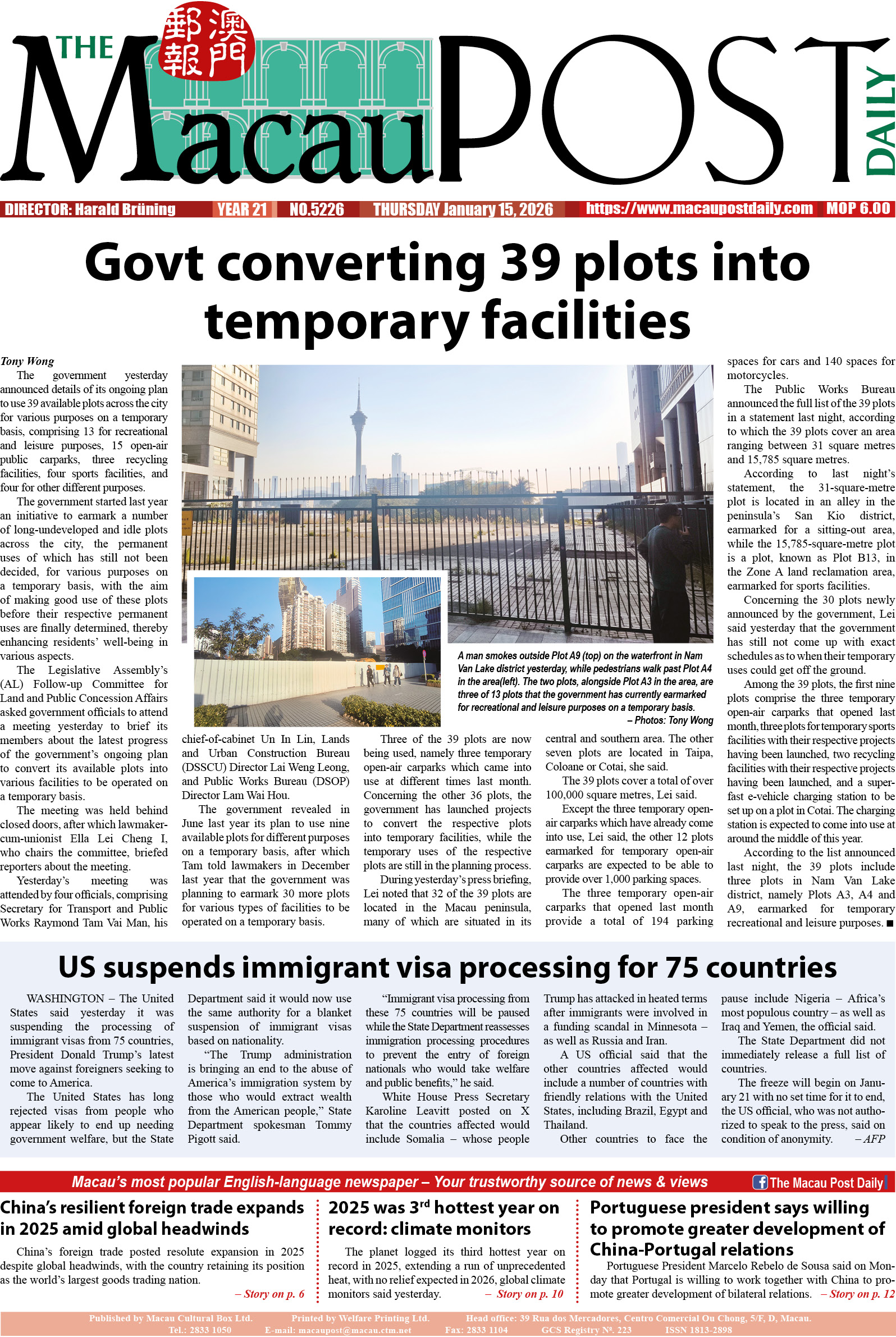Secretary for Administration and Justice André Cheong Weng Chon, who is also the spokesman for the government’s top advisory Executive Council, has announced that the government has finished drafting a bill proposing that members of the Chief Executive Election Committee will also be required to take an oath when taking office.
Cheong made the announcement during a press conference at Government Headquarters on Friday. The bill will be submitted to the Legislative Assembly (AL) in due course for debate, review and vote.
The bill proposes amendments to the current law regulating the oath-taking of those in the executive, legislative and judicial organs of the Macau Special Administrative Region (MSAR).
The current oath-taking law came into force on December 20, 1999 when the MSAR was established. The law was last amended in 2001.
In compliance with the MSAR Basic Law, Macau’s oath-taking law currently covers the chief executive, principal officials, the president of the Legislative Assembly, the president of the Court of Final Appeal (TUI), the public prosecutor-general, members of the government’s top advisory Executive Council, legislators, judges, and prosecutors.
The amended version of the MSAR’s national security law took effect on May 30 last year, according to which members of the Chief Executive Election Committee, which elects the MSAR chief executive, are also required to take an oath when taking office.
During Friday’s press conference, Cheong said that in compliance with the newly added provisions concerning oaths of office listed in the amended local national security law, the local government has drafted the bill amending the current oath-taking law, after studying and referencing the respective regulations in neighbouring regions while fully considering Macau’s real situation.
Cheong underlined that the amendment bill aims to ensure the full implementation of the “patriots governing Macau” principle, enabling the MSAR government to fully fulfil its constitutional responsibility.
Cheong noted that the amendment bill proposes that in addition to the members of the MSAR’s organs currently covered by oath-taking requirements, members of the Chief Executive Election Committee will also be required to take an oath of office.
However, Cheong said, the amendment bill proposes that the committee’s members will only be required to take their oaths by signing a declaration.
All those covered by the oath-taking law’s current version are required to take their oaths of office at a ceremony.
According to the MSAR Basic Law, the chief executive, principal officials, the Legislative Assembly’s president, the Court of Final Appeal’s president, and the public prosecutor-general must uphold the MSAR Basic Law and bear allegiance to the People’s Republic of China (PRC) and the MSAR, and take an oath accordingly.
Members of the Executive Council, lawmakers, judges, and prosecutors must uphold the MSAR Basic Law and bear allegiance to the MSAR, and take an oath accordingly, according to the MSAR Basic Law.
Refusal to take oath
Those covered by the oath-taking law’s current version but refuse to take an oath of office shall be disqualified from taking office.
According to Cheong, the amendment bill proposes that when taking an oath of office, those who intentionally read words that do not comply with their oath’s respective terms, or sign a declaration in which the terms of oath have been tampered with, will be regarded as refusing to take the oath.
In addition, Cheong said, the amendment bill also proposes that those who take their oaths in a way that is insincere or unsolemn will also be regarded as refusing to take the oath.
Legal Affairs Bureau (DSAJ) Director Leong Weng In added during the press conference that those who are disqualified from taking office under the newly proposed circumstances will not be allowed to take an oath again.

Secretary for Administration and Justice André Cheong Weng Chon addresses Friday’s Executive Council press conference at Government Headquarters. – Photo courtesy of TDM







